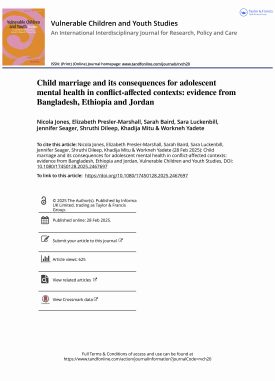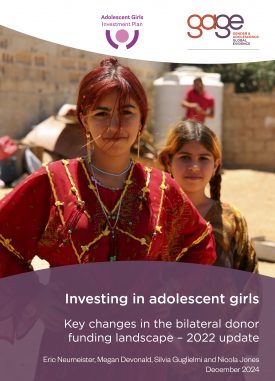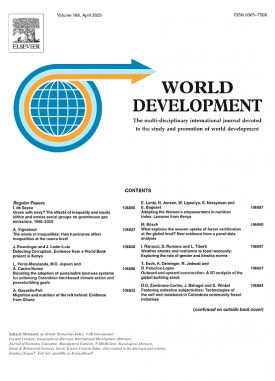This article explores the social determinants of adolescents’ access to education during the COVID-19 pandemic in three diverse urban contexts in Bangladesh, Ethiopia and Jordan. It provides novel empirical data from the Gender and Adolescence: Global Evidence longitudinal study, drawing on phone surveys (4441), qualitative interviews with adolescents aged 12–19 years (500), and key informant interviews conducted between April and October 2020. Findings highlight that the pandemic is compounding pre-existing vulnerabilities to educational disadvantage, and that gender, poverty and disability are intersecting to deepen social inequalities. The paper concludes by reflecting on policy implications for inclusive distance education in emergencies.
Suggested citation
Jones, N., Sanchez Tapia, I., Baird, S., Guglielmi, S., Oakley, E., Yadete, W.A., Sultan, M. and Pincock,
K. (2021) ‘Intersecting barriers to adolescents’ educational access during COVID-19: Exploring the role of gender, disability and poverty’ International Journal of Educational Development 85: 102428 (https://doi.org/10.1016/j.ijedudev.2021.102428)


